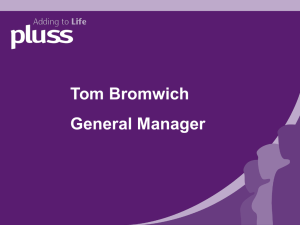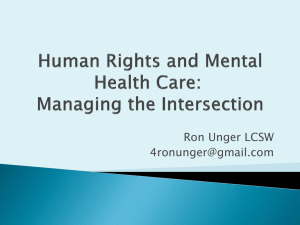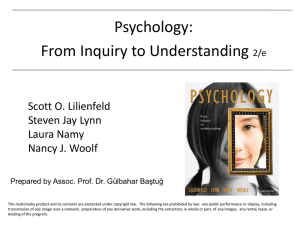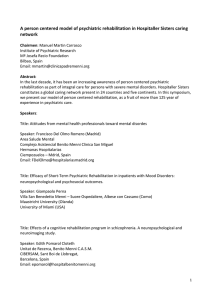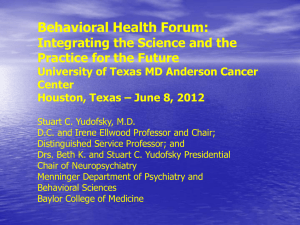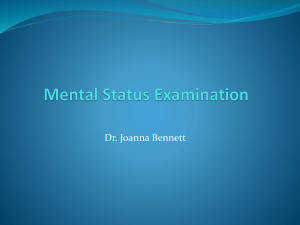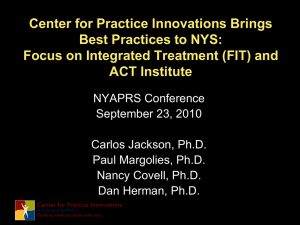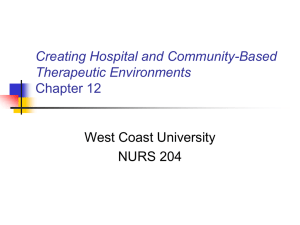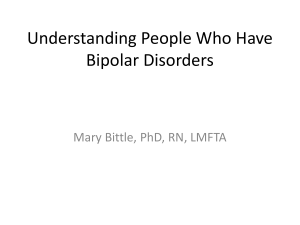Typical or Troubled?* - American Psychiatric Association
advertisement
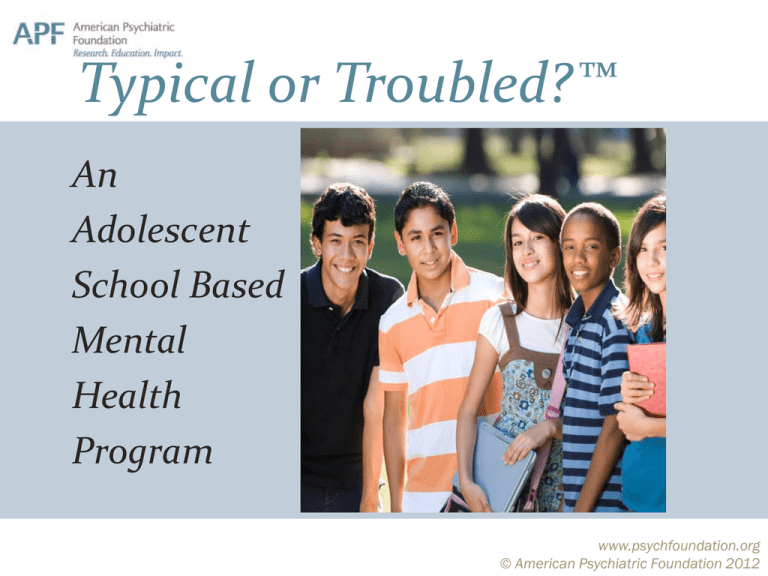
Typical or Troubled?™ An Adolescent School Based Mental Health Program www.psychfoundation.org © American Psychiatric Foundation 2012 American Psychiatric Foundation: About Us We advance the public’s understanding that mental illnesses are real and can be effectively treated Established in 1991 as the charitable subsidiary of the American Psychiatric Association Secures Philanthropic Support & Raises Awareness Conducts Public Education & Outreach Programs Patient, Family and Community Focused 2 www.psychfoundation.org © American Psychiatric Foundation 2012 Typical or Troubled?™ Key Facts About Teen Mental Health 90% of people who develop a mental disorder show warning signs during their teen years About 11% of youth between 9 to 17 years old, approximately 4 million people, have a major mental health disorder that results in significant impairments at home, school or with peers • Additionally, about the same number have less serious mental health problems Over 60% of all young people with mental health disorders are not getting the treatment they need • • • • Half of lifetime cases of mental health disorders begin by age 14 About 90% have early mental health warning signs by age 15 Suicide is the third leading cause of death among teens and young adults 15-24 years old NIMH reports a long gap of up to ten years between onset of symptoms and treatment 3 www.psychfoundation.org © American Psychiatric Foundation 2012 Typical or Troubled?™ Key Facts About Teen Mental Health • NIMH reports that youth with untreated mental illnesses experience worsening conditions, substance abuse, secondary disorders, and suicide • Mental health disorders severely impact academic performance and attendance and increase the likelihood a student will drop out of school • Significant impairment as adults in relationships, employment, and overall health 4 www.psychfoundation.org © American Psychiatric Foundation 2012 Typical or Troubled?™ Key Facts About Teen Mental Health Intervention and treatment makes a difference … • Recognition and appropriate help for teens with mental health problems has been shown to increase test scores. Research shows that effective mental health interventions and a positive school climate contribute to improved student achievement • Recognition and intervention can delay the onset of substance abuse. Research shows that if mental health intervention occurs before the ages when youth are most likely to begin experimenting with or using drugs and alcohol, it can often deter substance abuse 5 www.psychfoundation.org © American Psychiatric Foundation 2012 Typical or Troubled?™ Program Mission • Reduce the gap between the onset of mental health disorders and treatment of adolescents • Improve the health, social and emotional well-being of adolescents 6 www.psychfoundation.org © American Psychiatric Foundation 2012 Typical or Troubled?™ Mental health education program for school communities; evidence based and fully evaluated • Training and technical assistance • Slide presentation with bulleted scripted notes for presenters • Concise and professionally crafted • Presented by school personnel and mental health professional • Brochures English and Spanish • Interactive Educational Exercises • Pre-test and Evaluation form 7 www.psychfoundation.org © American Psychiatric Foundation 2012 Typical or Troubled?™ School Programs Across the Country • Reached 38 states and over 500 rural, urban and suburban high schools and school districts • Educated over 40,000 teachers, coaches, bus drivers, principals and other school personnel • Connected with over 560,000 students in urban, rural, and suburban communities • Averted attempted suicides • Increased treatment referrals for students • Established or improved treatment referral protocols in schools 8 www.psychfoundation.org © American Psychiatric Foundation 2012 Serving Hispanic School Communities Created Típico o Problematico? ™, a culturally sensitive educational program to address Hispanic student mental health Trends show that minority children will become the majority by 2023 in many of the locations where we work, including: • • • • • Miami, Fla: 65% of students are Hispanic New Mexico: 55% of students are Hispanic California: 47 % of students are Hispanic Texas: 44 % of students are Hispanic Arizona: 40 % of students are Hispanic 9 www.psychfoundation.org © American Psychiatric Foundation 2012 Evaluating the Program 2009 2010 2011 Mental Illness if untreated can greatly damage a teen present and future , % agree 91% 91% 93% People with mental illness rarely show warning signs in their teens , % disagree 78% 71% 71% Frequency and extremity of warning signs can help school staff distinguish between typical adolescent behavior and troubling MHP - % agree 88% 87% 89% I know the warning signs of mental health problems to look for in a teen - %know 86% 80% 85% I can distinguish troubling signs in a teen - % know I know how to help a student - % know 79% 75% 77% 60% 80% 73% I know how to talk to a student I suspect is showing the warning signs - % know 57% 63% 63% I would talk to a parent or guardian about a student - % know 58% 53% 54% I would refer a student to a MH professional -% agree My school has a referral process -% who know they have 83% 85% 75% 63% 77% 71% Typical or Troubled Post Training Evaluation Questions Knowledge or Mental Illness Noticing the warning signs Taking Action www.psychfoundation.org © American Psychiatric Foundation 2012 What Participants Say “The program was so well received that other schools in district requested presentations. We got requests to give presentations to parents, bus drivers, cafeteria workers and school aides.” “ No other program like it; well designed and comprehensive all in one hour” “ The presentation helped open up a dialogue with the parents and teachers about how to help and what resources exist and how to access them.” 11 www.psychfoundation.org © American Psychiatric Foundation 2012 Typical or Troubled?™ HELP = Better academic achievement Improved attendance Less substance abuse Improved outcomes for the future www.psychfoundation.org © American Psychiatric Foundation 2012 Changing a Life’s Course www.psychfoundation.org © American Psychiatric Foundation 2012
